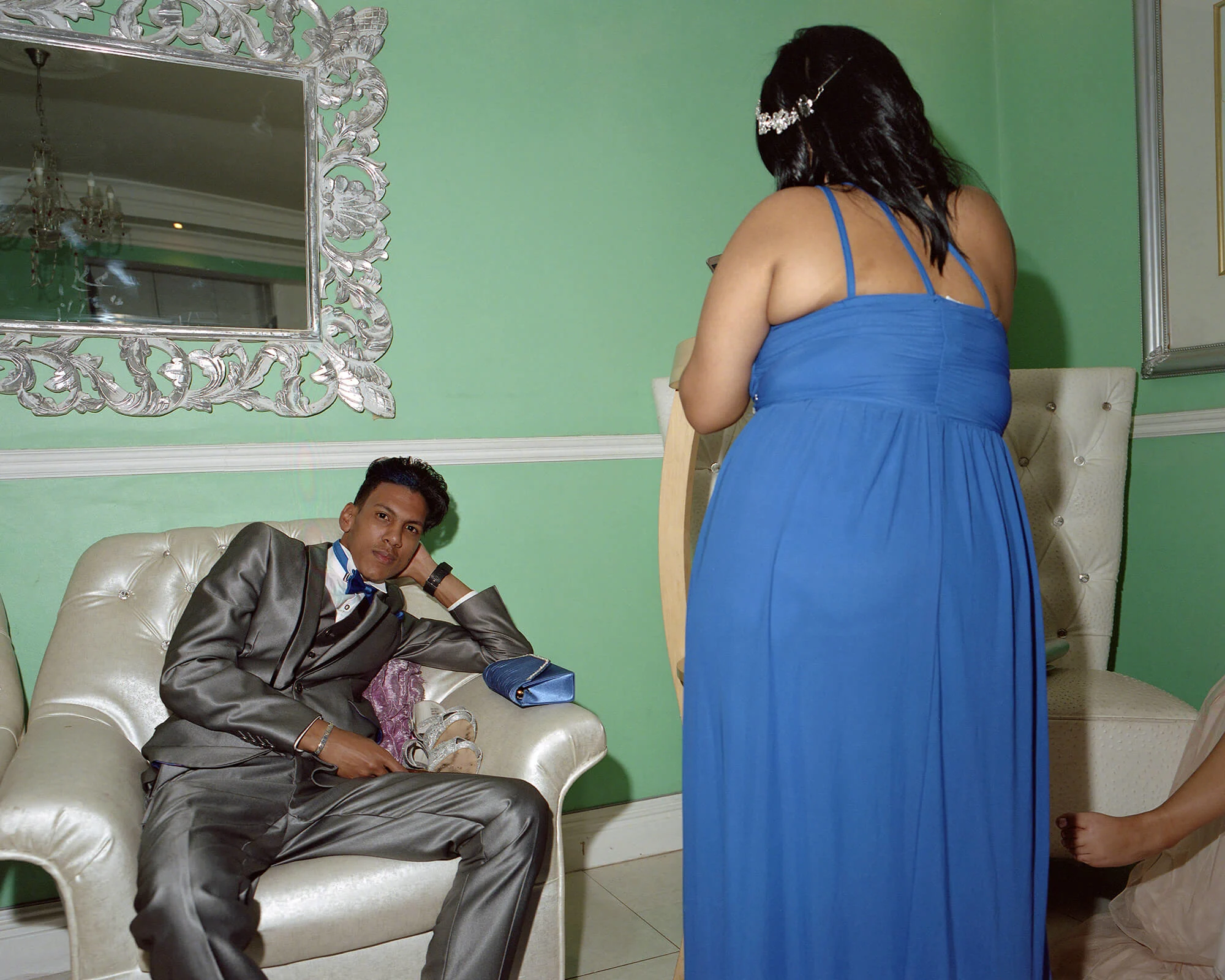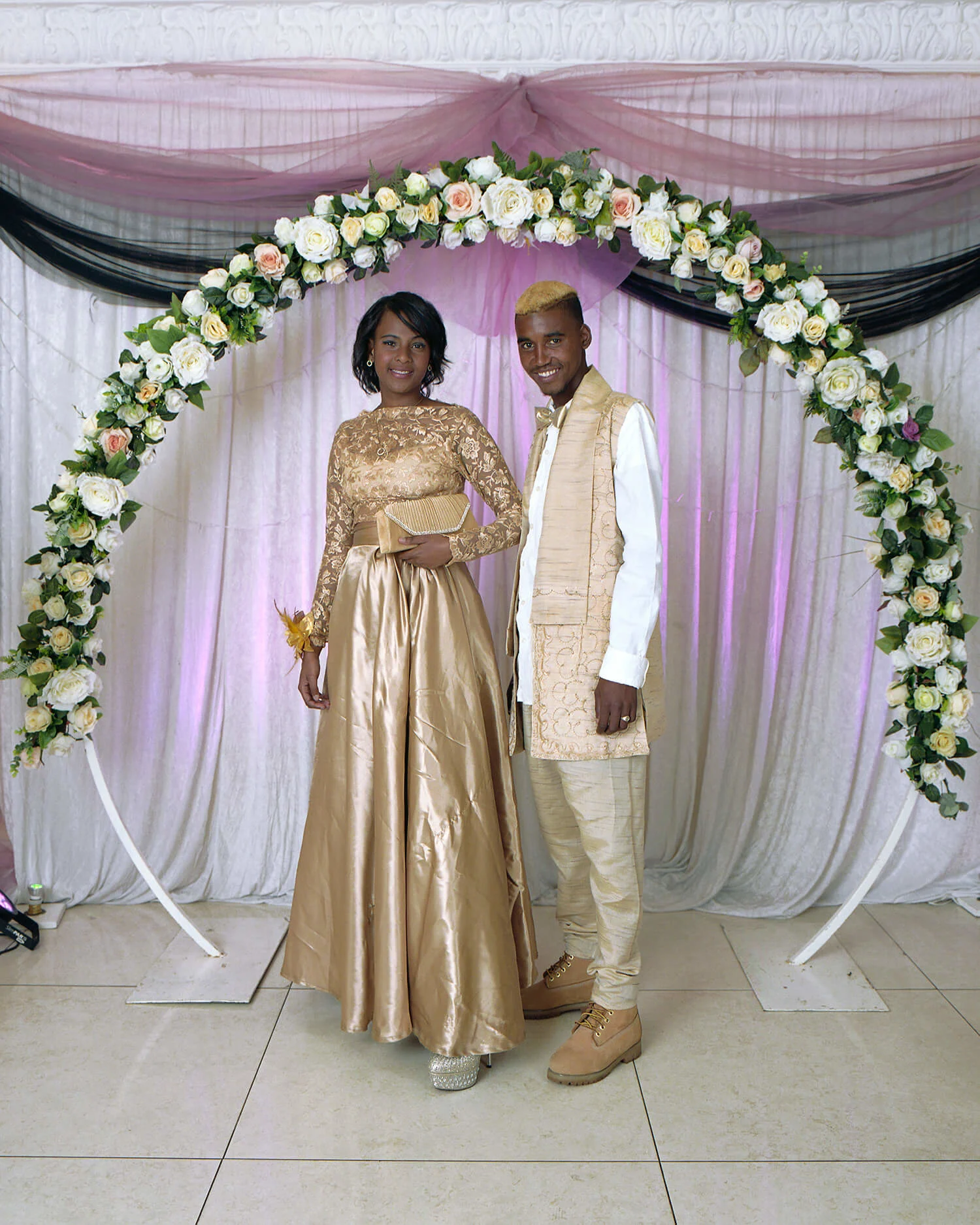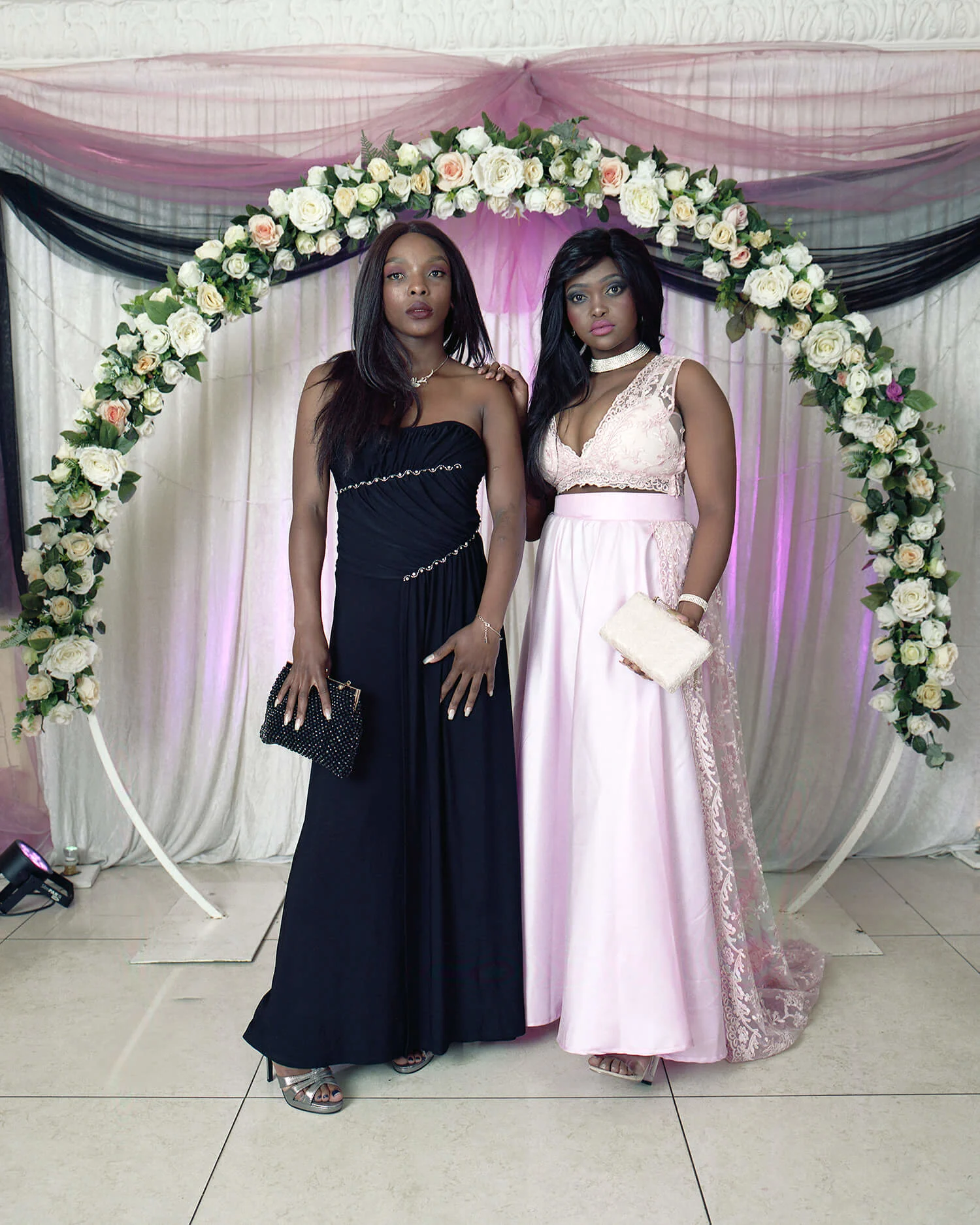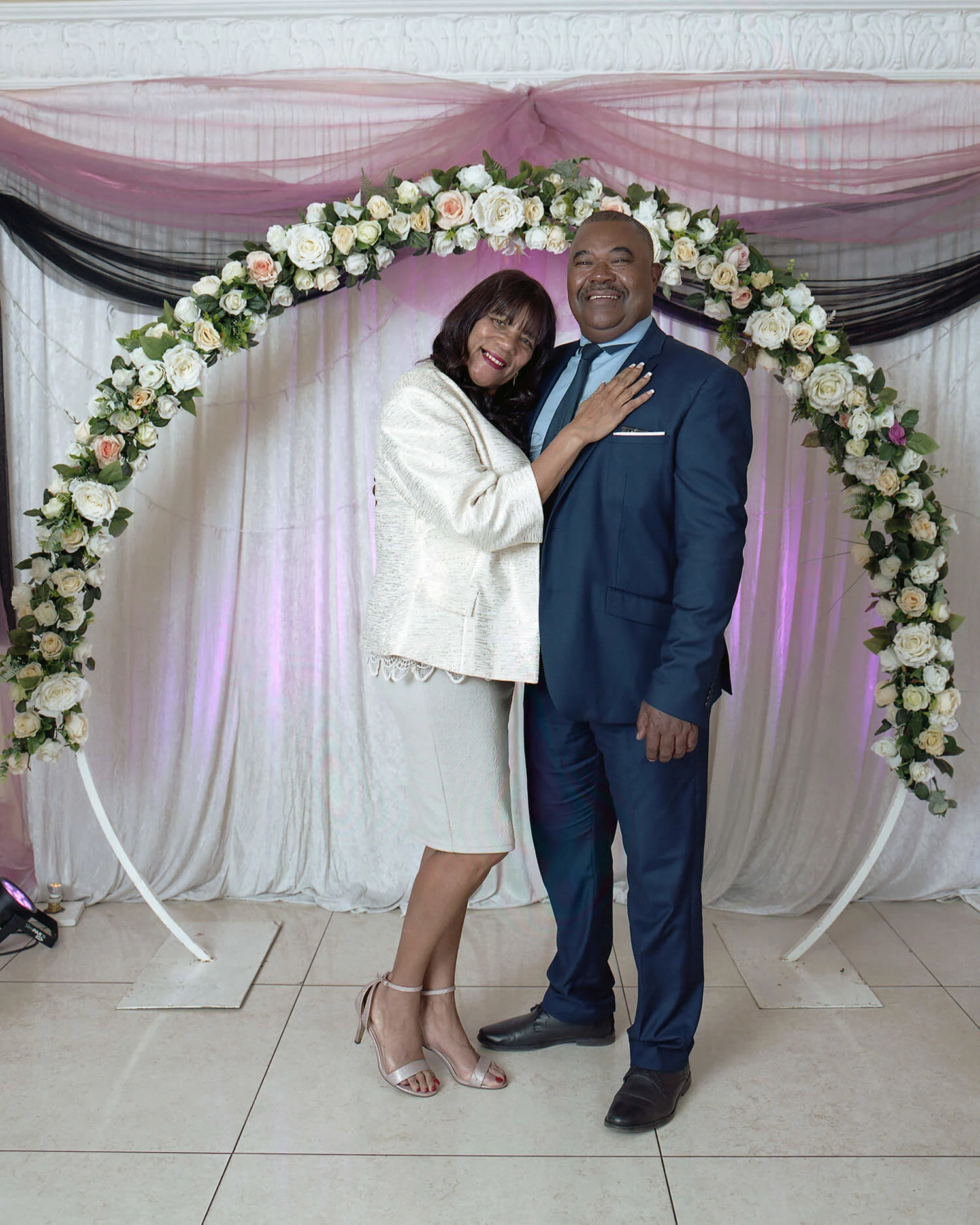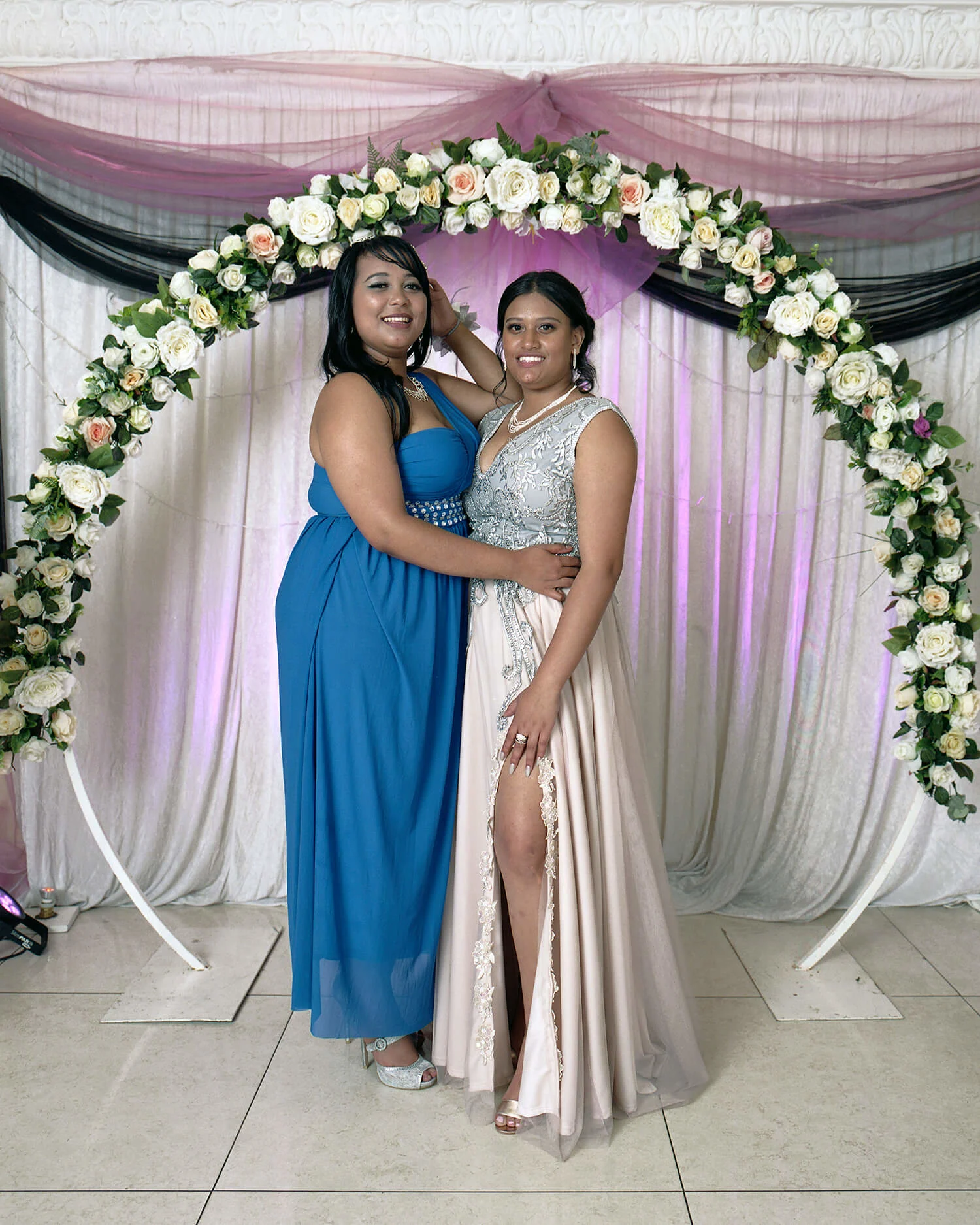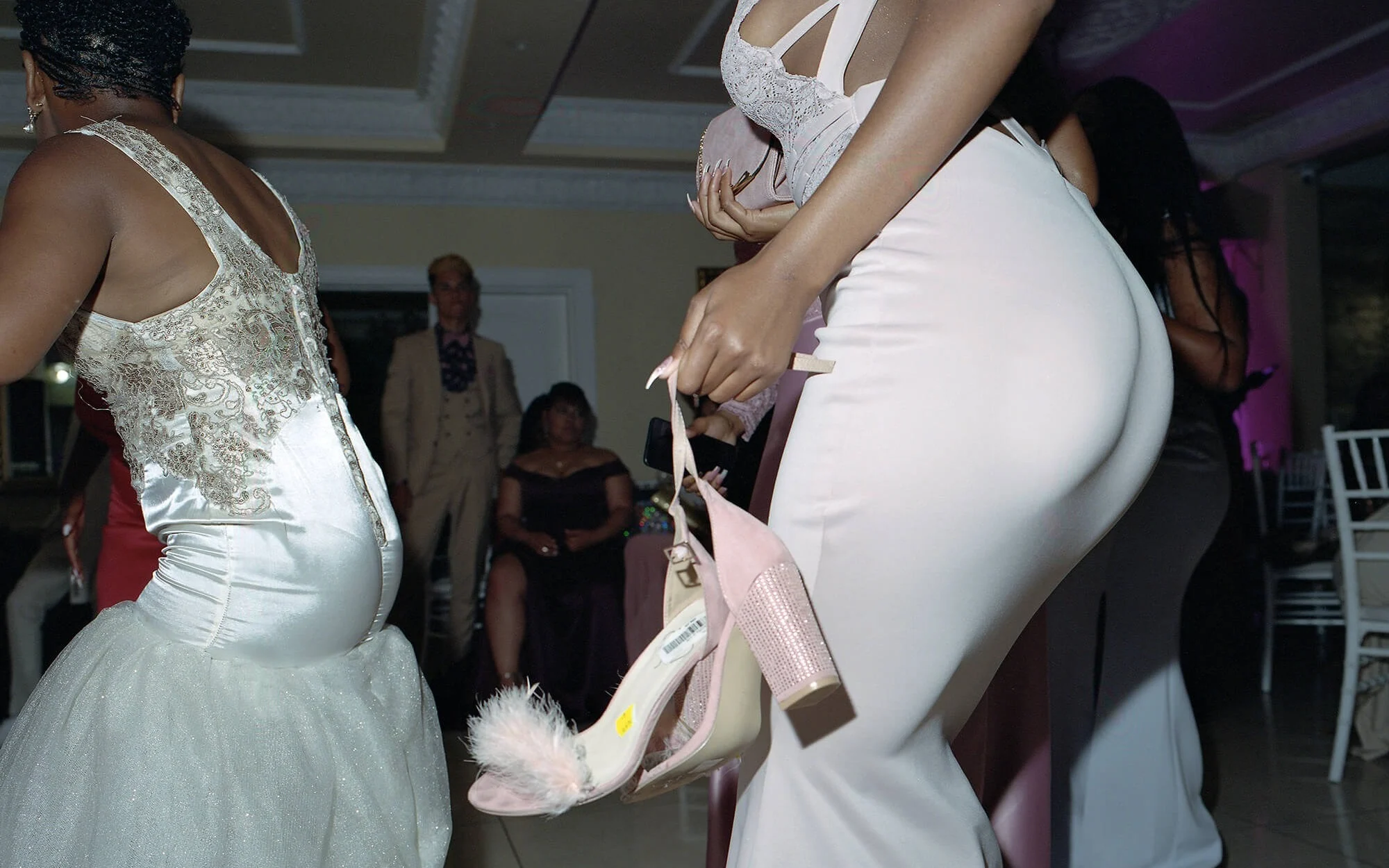
Alice Mann — Photos challenging stereotypes of life on the African continent

Photos challenging stereotypes of life on the African continent
Remember your prom night? Us neither really. But while high school proms happen all around the world, in a South African township, the milestone’s even more meaningful.
We commissioned award-winning South African photographer Alice Mann to go back to Peak View High School outside of Cape Town to make a new series capturing prom night in all its fun-filled glory. Neo Maditla spoke to Alice about her latest work, and the backlash she’s had to some of her previous photographs.
Every detail of the picture screams special occasion. The carefully-chosen dresses, the color-coordinated nails, the matching high-heeled shoes dangling now from a hand – a gesture of rest recognizable to anyone who’s ever tried wearing heels like that for a whole night.
An American export, the high school prom is now a raucous rite of passage around the world. It marks the end of school and the beginning of adulthood, and like many transition zones, normal rules of behavior don’t usually apply. With one foot in the past and one in the future, proms become joyous evenings where – for a few hours at least – you’re neither one thing or another.

In many ways, South Africa is no different. Only the terminology changes. The end of high school – which is called grade 12 – is followed by a matric dance. But in a country where nearly half the pupils who start school will not make it to grade 12, reaching matric is an achievement in itself. Of the current South African population, just one in five has a high school diploma.
So for photographer Alice Mann, the matric dance was a chance to tell a very broad story through the lens of a very specific event. She first explored the subject through the eyes of one student – Khanyisa Mtulu – in her excellent series Khanyi’s Dance.
In one image Khanyisa looks confidently, almost daringly into the camera, hands tucked into both pockets of her skirt, her braids swaying in the breeze. It seems like she could be anywhere in the world. But the few background details identify it as one of the townships outside Cape Town. Here educational achievement is even rarer, and so her school – Peak View High – was a perfect place to photograph.


Alice went back to the school for Matric Ball Portraits – her new series commissioned by WePresent. It covers formal portraits you’d expect from a prom – the graduates proudly posing in front of an arch of flowers – and party pictures, of people letting loose, unaware of the camera. “I tried to make decisions based on the way the images communicate the students’ pride and confidence,” Alice says.
“Growing up here, I try to create work that challenges old stereotypes about life on the African continent, specifically the way people are represented. Most of these students at Peak View are facing various socio-economic challenges, so reaching matric, the final year of school, is a marked achievement.”

It’s not just the children’s sometimes challenging lives that whittle down the number of people at the ball. Of this year’s class of 2018, only 30 of the 80 matriculants could afford to attend the end-of-year party.
“It’s representative of their hard work and signifies aspiration for the future,” Alice explains. “It also symbolizes this beautiful moment that students look forward to throughout their high school careers – this night of celebration where everyone dresses up to the nines, enjoys a beautiful meal and dances for the rest of the night.”
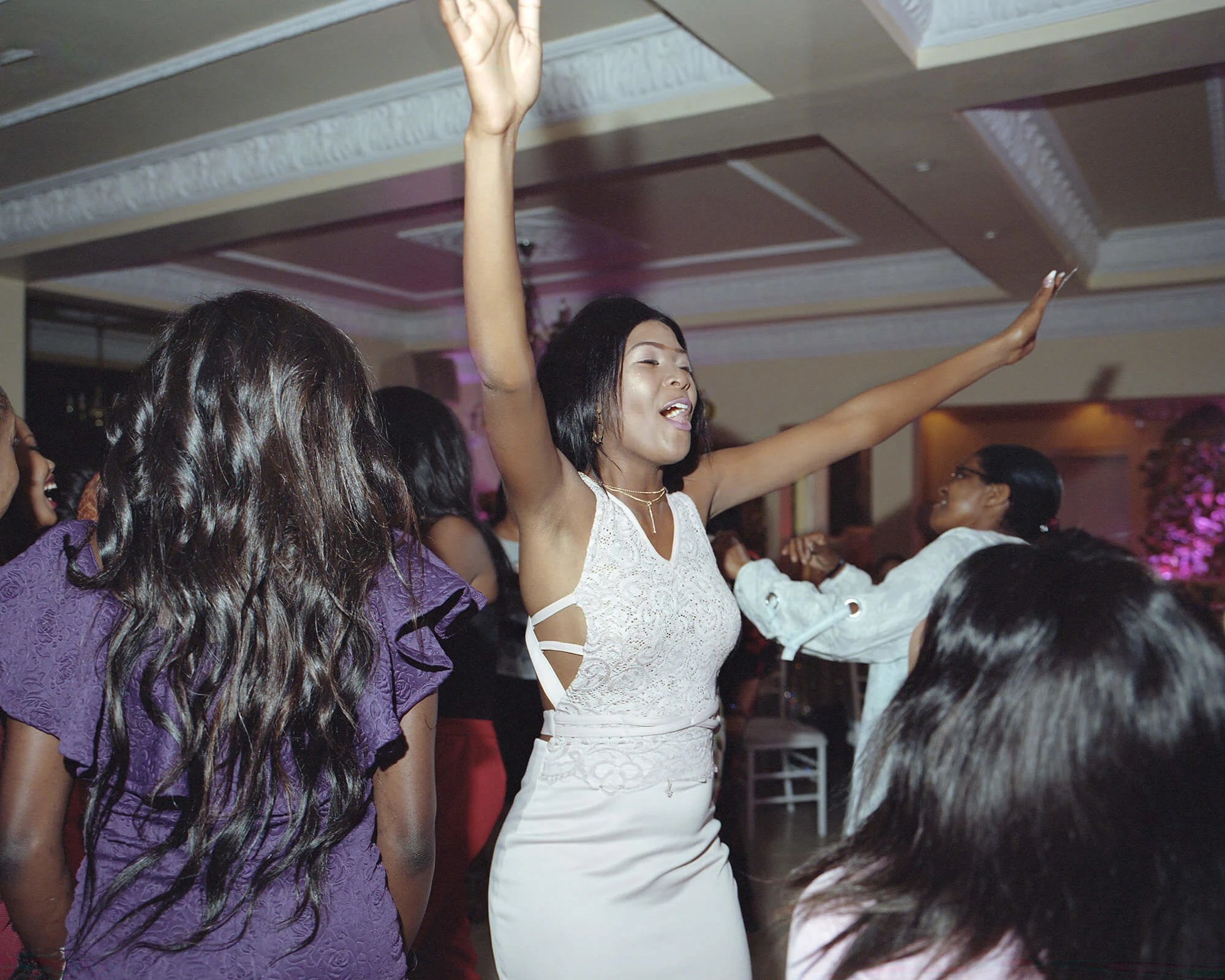
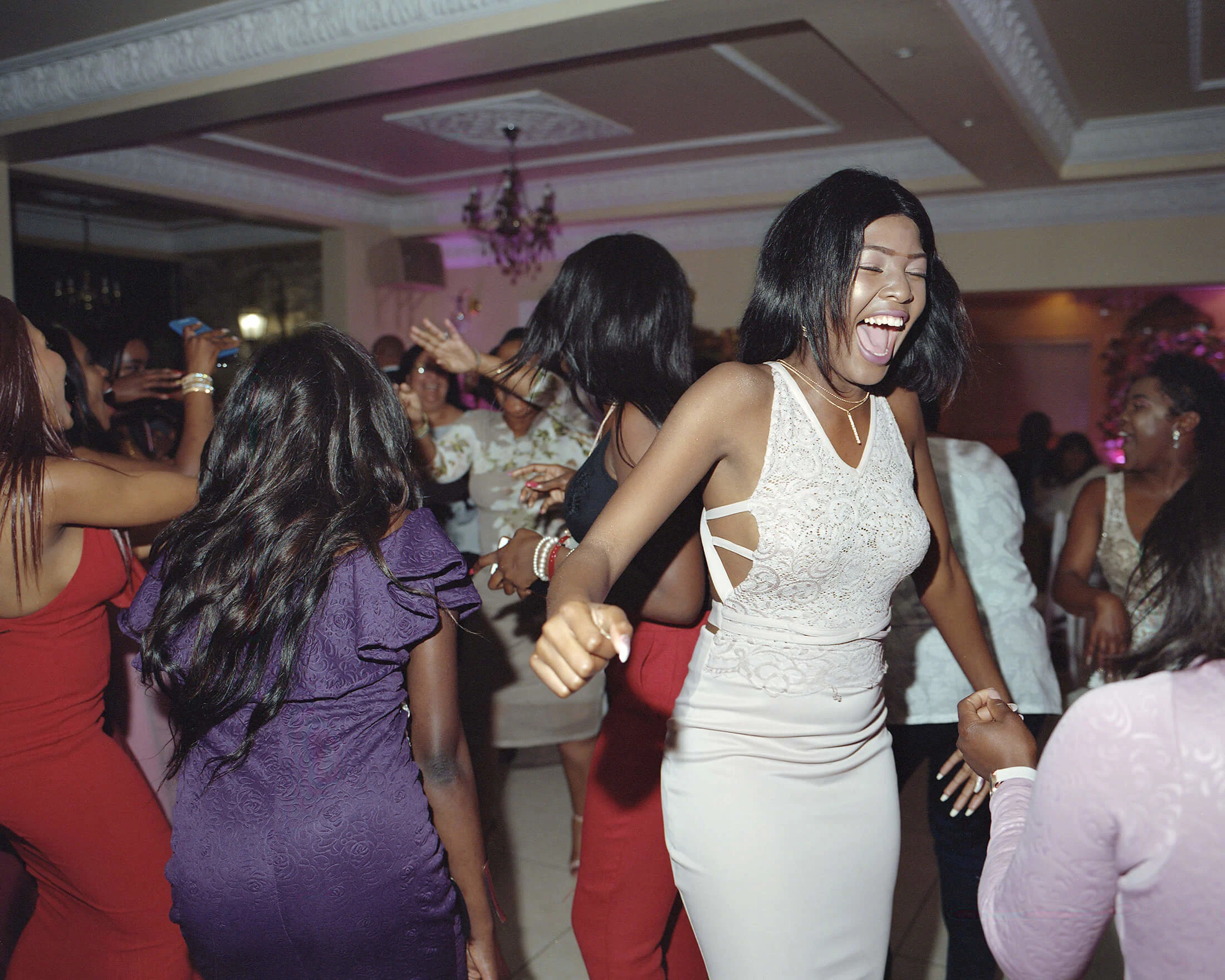
And indeed, in Alice’s photos you can see the effort the students put into the clothes. Like the boy, staring directly at the camera in a shiny grey suit, with a blue bow-tie to match the color of his date’s dress.
Both in the staged portraits and the more natural shots, the subjects look completely at ease. “For me the important thing when working with people is that they’re comfortable,” Alice says. “I aim to collaborate with people more than direct them. So it’s essential that I can create a space where they feel confident enough to project what they want to the camera,” Alice says.
“I always find that once people start to relax, I can work out things like lighting and location and the way I direct becomes very minimal. Every individual expresses something that is totally unique which is the special part.”
Alice didn’t make it easy for herself though working in a busy environment like a prom. Throughout the shoot she had to improvise and adapt to the situation. The photo booth for example had to be set-up and dismantled at various points because the space was needed for speeches. “But the elaborate flower arch where the portraits were set was a perfect backdrop, so it made it worth it,” Alice explains.


Matric Ball Portraits follows in the footsteps of a range of series in which Alice turns her lens to young women living in South Africa. In October 2018, Alice won the hugely prestigious Taylor Wessing prize for her project Drummies.
It features a group of young majorettes at a primary school in Belhar, another suburb of Cape Town, which also struggles with crime and poverty. She discovered the group through a newspaper article about a neighbor’s noise complaint about the girls’ drumming.
“These little girls have such a calm sense of self – they put on their uniform and immediately they stand straight. They don’t even know they are doing it, but you can see that they feel they look good. That’s so cool to see, that sort of transformation. They are natural performers and they know what they want to project,” Alice says.
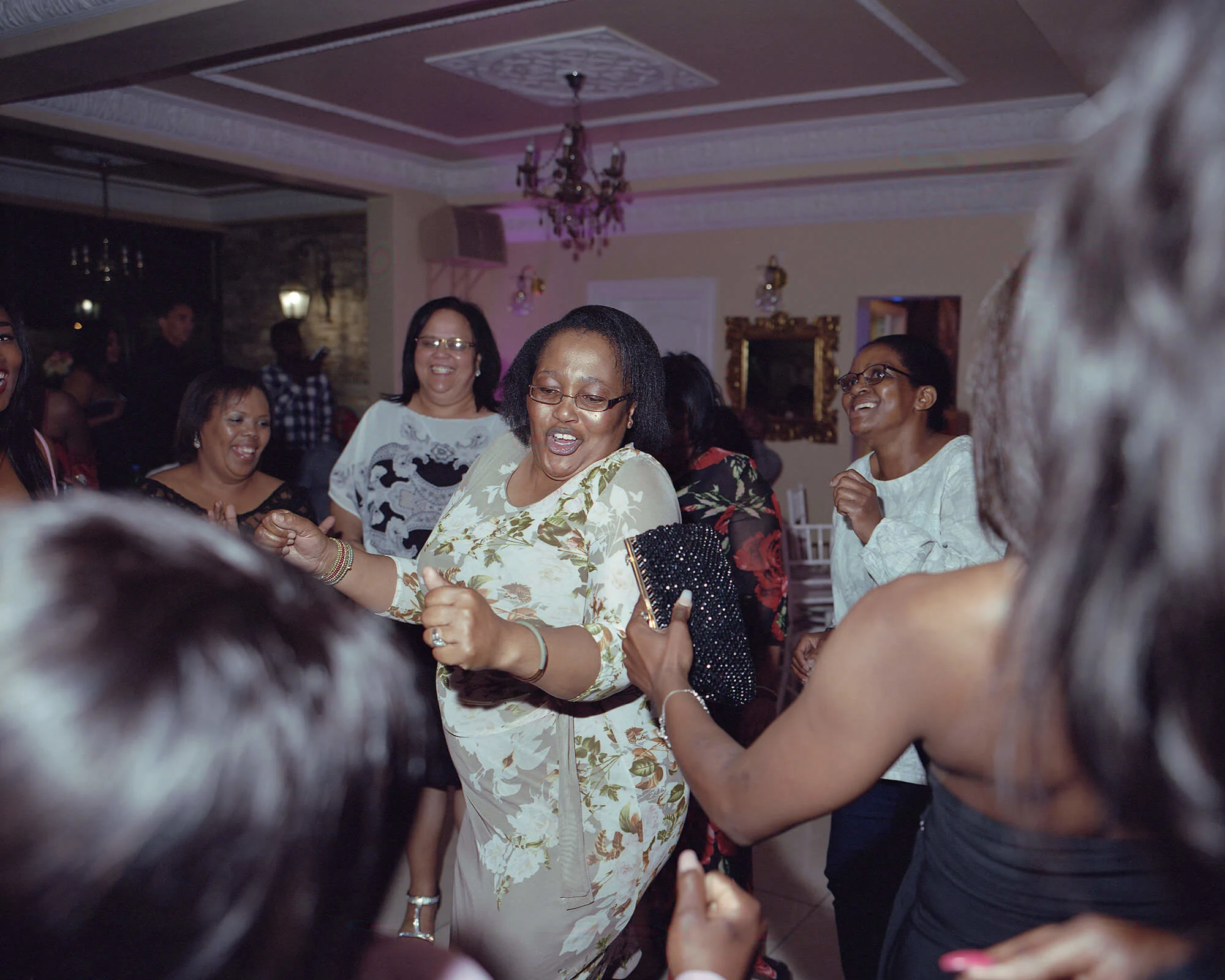
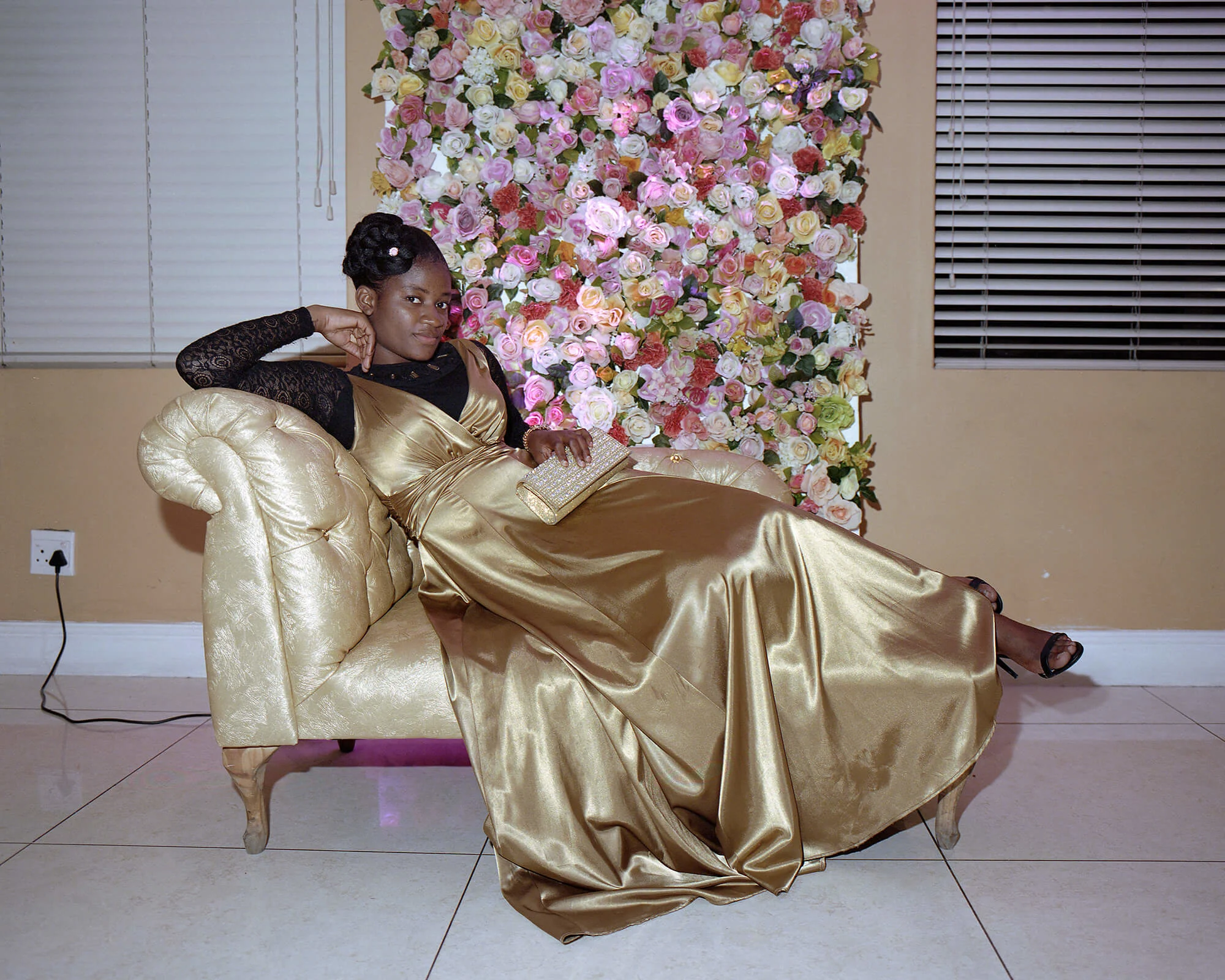
In another project, Domestic Bliss, Alice photographed domestic workers in their uniforms while posing in the homes of their employers in the rich suburbs of Cape Town.
The project received backlash from the local community, with Alice being a white photographer capturing poor black people from the townships. In a city like Cape Town, where the line through inequality is literally black and white, Alice’s work, despite her best intentions, can sometimes sit uncomfortably.
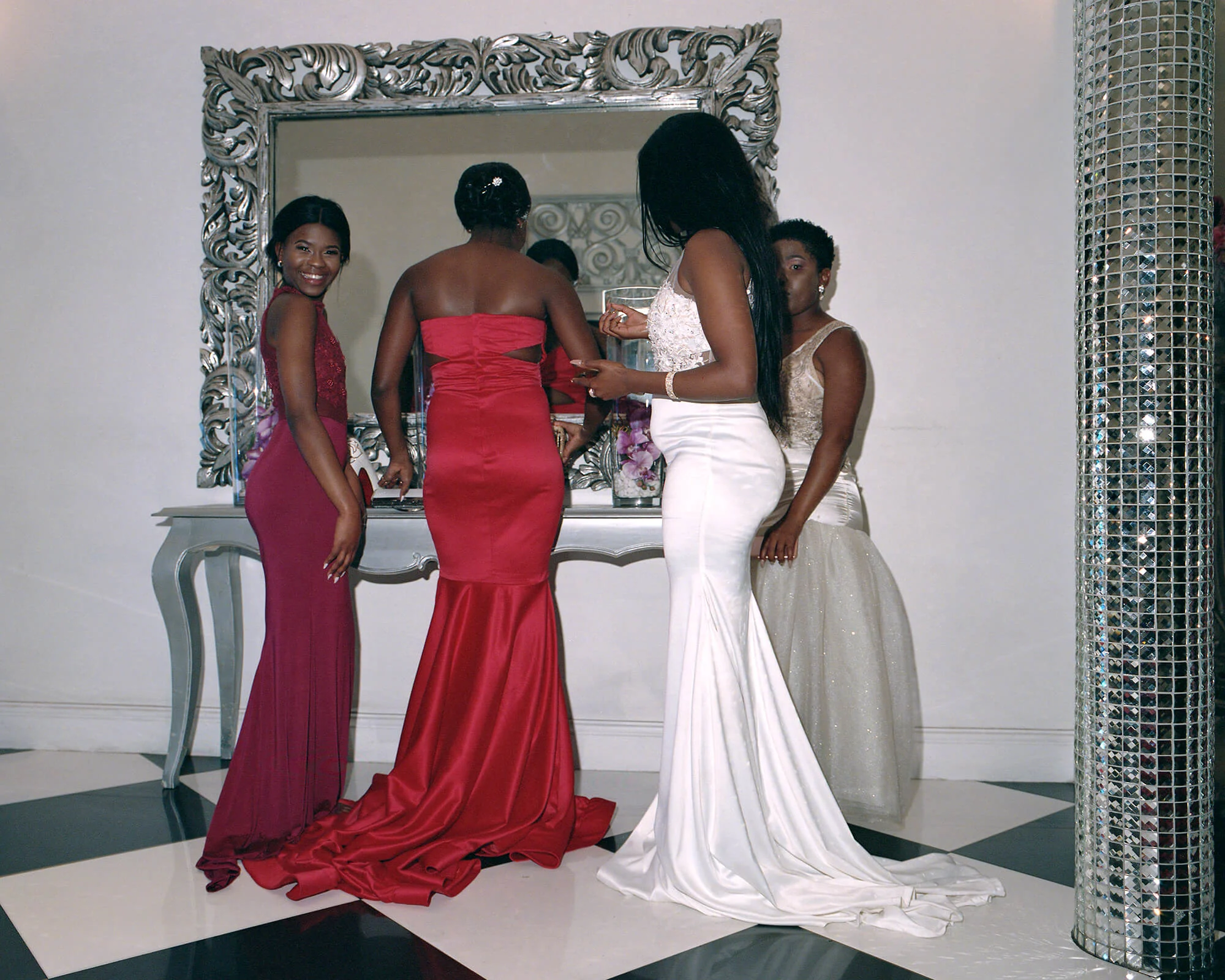
Alice says she was taken aback by the criticism but understands where the anger was coming from.
“For me it’s about just trying to be aware, trying not to reiterate old tropes of what I see and having an awareness of the visibility of my whiteness, acknowledging that and the privilege that comes with it — which is often seen as invisible,” Alice explains.
“I’m very aware of my position. I try very much to facilitate a space where I’m not talking over people – to step back and listen rather than projecting something onto people.”
This awareness is reinforced by her not dropping in and out of places, working on a project and then leaving. Instead her work is mostly long-term where she develops relationships over time with the people she photographs.
“I want anyone who looks at the images I create to know that it was a collaboration,” she says. “To see the power of the people that I work with.”
